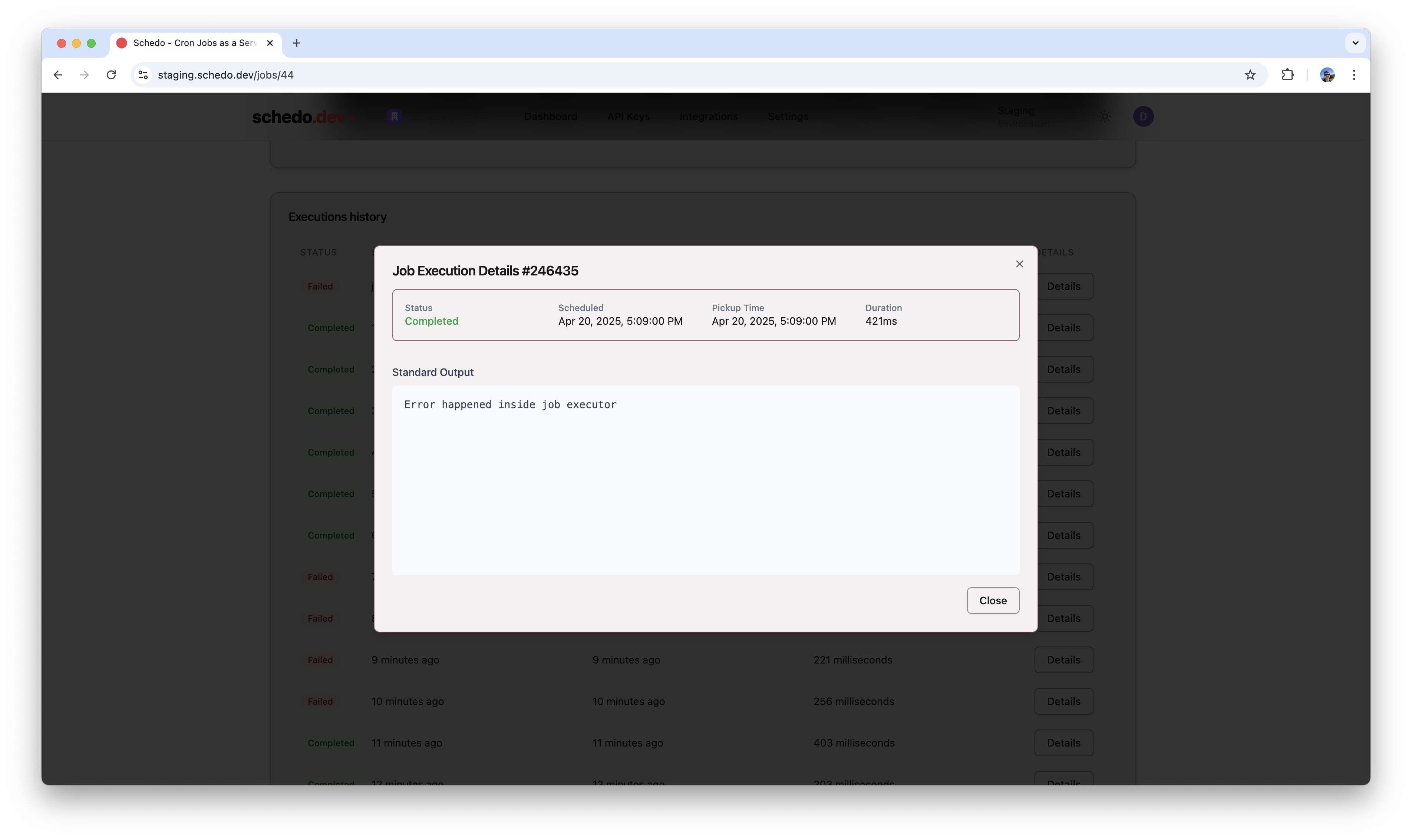Job Status
Track basic job execution status:Execution Context
Access basic execution information in the job context:Best Practices
-
Basic Status Tracking
-
Execution Context
Job Execution Details
For each job execution, you can view detailed execution information:
- Execution status (Completed/Failed)
- Scheduled and actual execution times
- Duration
- Standard output from the job
- Any error output if applicable